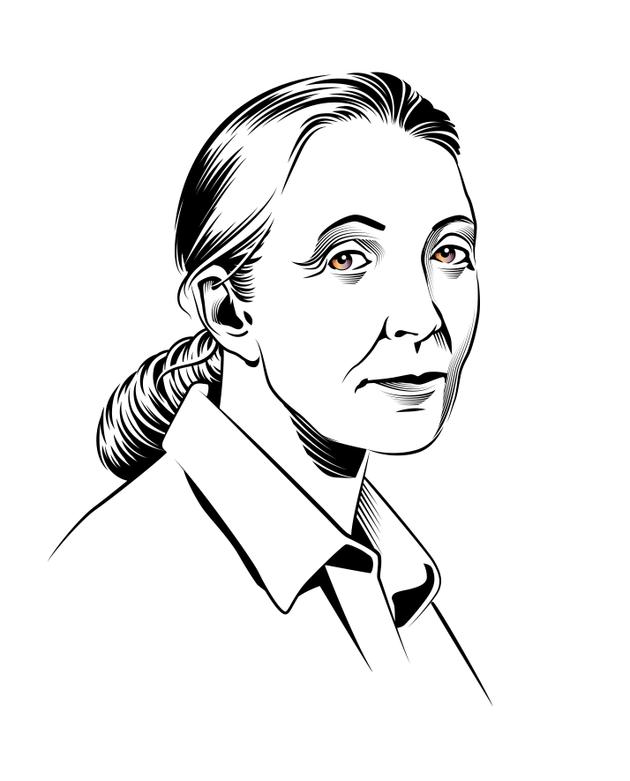

Jane Goodall: 'At COP28, world leaders must make ambitious commitments and honor them!'
InterviewAs a new COP is held in Dubai until December 12, the British activist and iconic warrior for environmental preservation believes that individual and local commitment is essential to put pressure on companies and politicians.

At nearly 90, British primatologist Jane Goodall, a leading figure in the fight for biodiversity and the animal cause, has lost none of the determination that has marked her career. When she was 26, the woman who at the time had no degree in ethology shook off the conventions of the 1960s to live as close as possible to the chimpanzees in Tanzania and study their way of life in their natural environment.
By describing their ability to use tools to feed themselves, she changed the way we look at primates, revisiting the place of humans in the living world. She became an activist for animal and environmental causes, and was appointed United Nations Messenger of Peace. Today, with the institute that bears her name, she continues her fight against poverty, convinced that "we can't save chimpanzees and forests if villagers don't have the means to earn a living."
World leaders are meeting in Dubai until December 12 for the 28th COP (Conference of the Parties), in an attempt to curb global warming. What do you expect from this meeting?
We now know that the reduction in CO2 emissions is still insufficient to limit global warming to 1.5°C, as envisaged in the Paris Agreement. Climate experts fear that temperatures could rise by as much as 2°C, or even more. If this is the case, it will be too late for the most vulnerable populations and a number of species.
There's still a limited window of time, and I'm hopeful that governments and businesses are starting to take things seriously. To the world leaders gathered in Dubai, I have this message: before it's too late, stop supporting oil and gas extraction policies, increase funding for renewable energies, fight poverty and force the very rich to reduce their environmental footprint, make ambitious commitments and, above all, honor them! Because you haven't honored the ones you've made so far.
You've gone from scientific observation to environmental activism. When do you decide to get involved?
When I started studying chimpanzees in Tanzania's Gombe Stream National Park, I wasn't a scientist. I was a young woman curious about wild animals. I was also criticized for giving the chimpanzees names when I should have numbered them and for writing that they had personalities, minds and emotions when these were the prerogative of human beings. Dr. Louis Leakey, with whom I worked, encouraged me to take a degree. I obtained my PhD in ethology in Cambridge (UK) and returned to work with chimpanzees in Gombe, where I had the time of my life.
You have 75% of this article left to read. The rest is for subscribers only.
